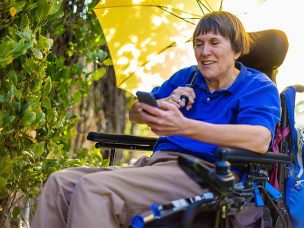Gastroenterology
AMA Pushes for Widespread Telehealth Adoption
WEDNESDAY, Dec. 2, 2020 (HealthDay News) — At a Special Meeting of the AMA House of Delegates, the American Medical Association (AMA) adopted a new policy to advocate for widespread adoption of telehealth beyond the COVID-19 pandemic. According to the resolution, the AMA will advocate for the federal government and the Centers for Medicare &...
Female Doctors Less Likely to Be Promoted to Upper Faculty Ranks
WEDNESDAY, Dec. 2, 2020 (HealthDay News) — Women physicians in academic medical centers are less likely than men to be promoted to upper faculty ranks, according to a study published in the Nov. 26 issue of the New England Journal of Medicine. Kimber P. Richter, Ph.D., M.P.H., from the University of Kansas School of Medicine...
Industry Payments Consistently Linked to Physician Prescribing
TUESDAY, Dec. 1, 2020 (HealthDay News) — Industry payments are associated with physician prescribing patterns, according to a systematic review published online Nov. 24 in the Annals of Internal Medicine. Aaron P. Mitchell, M.D., M.P.H., from the Memorial Sloan Kettering Cancer Center in New York City, and colleagues examined whether receipt of payments from the...
Breast Cancer, CRC Incidence No Different With, Without MS
MONDAY, Nov. 30, 2020 (HealthDay News) — The incidence of and mortality rates for breast and colorectal cancers do not differ for individuals with and without multiple sclerosis (MS), while bladder cancer incidence and mortality rates are higher for MS patients, according to a study published online Nov. 25 in Neurology. Ruth Ann Marrie, M.D.,...
Predictors of Late Effects in Young AML Survivors Explored
MONDAY, Nov. 23, 2020 (HealthDay News) — Many adolescent and young adult (AYA) survivors of acute myeloid leukemia (AML) experience late effects, with the most common being endocrine, cardiovascular, and respiratory, according to a study published online Nov. 9 in the International Journal of Epidemiology. Renata Abrahão, M.D., Ph.D., from the University of California Davis...
Wrong-Patient Order Entry Errors Reduced With Patient Photos
THURSDAY, Nov. 19, 2020 (HealthDay News) — Displaying patient photographs in electronic health records (EHRs) reduces wrong-patient order entry (WPOE), according to a study published online Nov. 11 in JAMA Network Open. Hojjat Salmasian, M.D., Ph.D., from Brigham and Women’s Hospital in Boston, and colleagues evaluated whether the noninterruptive display of patient photographs in the...
Patients Happier With Doctors of Same Race
MONDAY, Nov. 16, 2020 (HealthDay News) — Racial/ethnic concordance between patients and their physicians is associated with higher patient satisfaction scores, according to a study published online Nov. 9 in JAMA Network Open. Junko Takeshita, M.D., Ph.D., from the University of Pennsylvania in Philadelphia, and colleagues evaluated patient- and physician-related determinants of the patient experience...
Lung Cancer Tied to Most Potential Years of Life Lost
MONDAY, Nov. 16, 2020 (HealthDay News) — The largest numbers of potential years of life lost (PYLLs) were due to deaths from cancers of the lung/bronchus, colon/rectum, and breast in 2017, according to a study published online Nov. 13 in Cancer Epidemiology, Biomarkers & Prevention. Minkyo Song, M.D., Ph.D., from the National Institutes of Health...
Automated Alarm IDs Inpatients at Risk for Sudden Decline
THURSDAY, Nov. 12, 2020 (HealthDay News) — The use of automated detection of impending in-hospital clinical deterioration for which interventions could be implemented is associated with reduced mortality, according to a study published in the Nov. 12 issue of the New England Journal of Medicine. Gabriel J. Escobar, M.D., from the Kaiser Permanente Medical Center...
More Medical News














